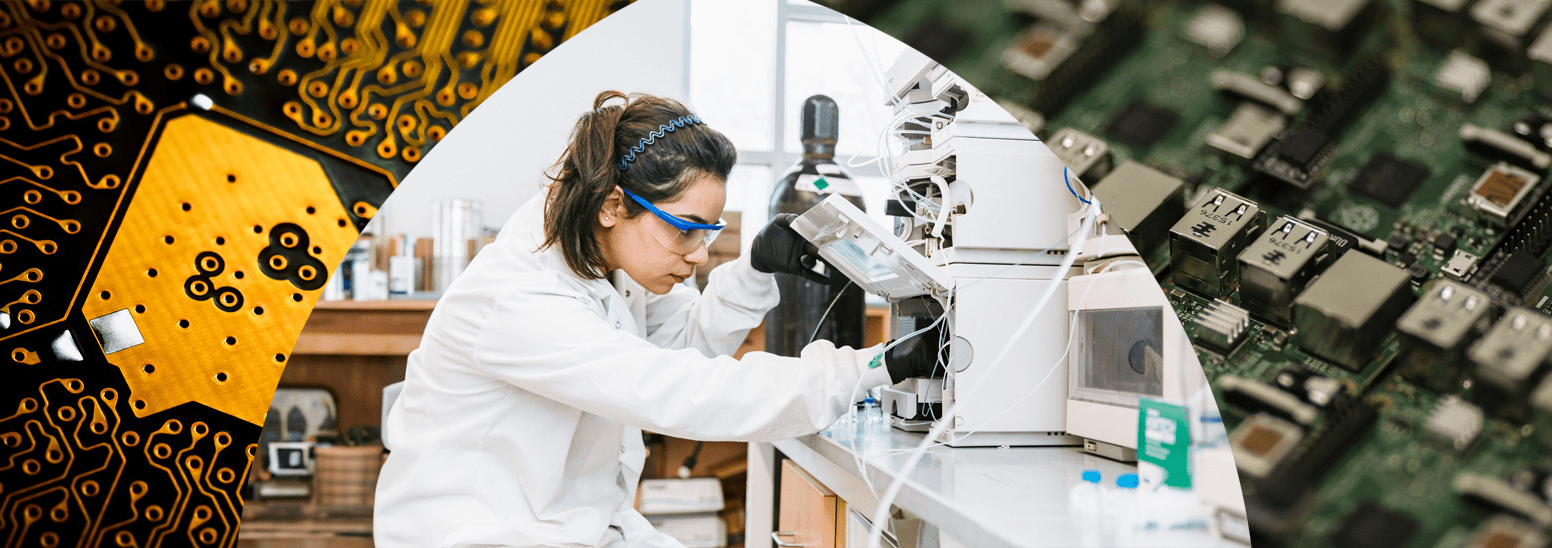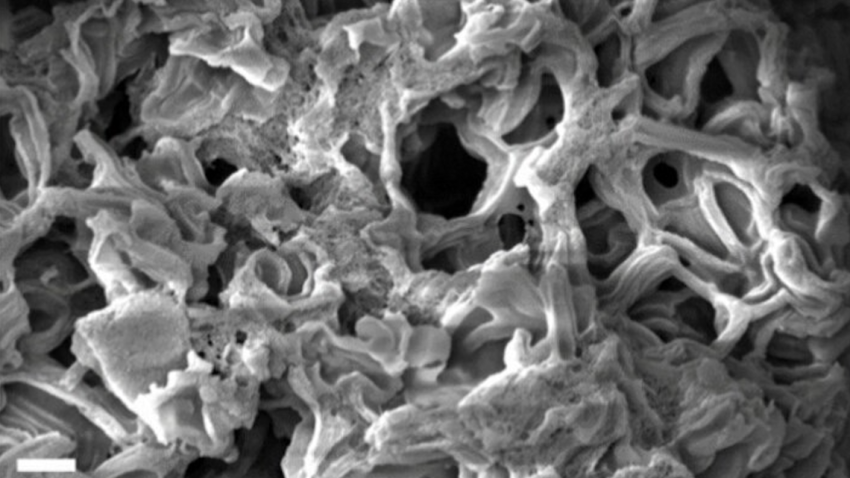The confluence of the fields of molecular engineering, machine learning, product design, and additive manufacturing is revolutionizing how products are designed and made in virtually every field. Cornell Engineers are leveraging unprecedented advances in computing power to conceive of and design novel materials atom-by-atom. Using advanced manufacturing methods, we are creating materials and products that can revolutionize energy capture and storage, deliver better medicines, and transform how humans interact with their environment.
-
1
The thickness in molecules of the record-shattering thinnest piece of glass created by David Muller, the Samuel B. Eckert Professor of Engineering
-
314+
Journal papers published from research conducted at Cornell’s Platform for the Accelerated Realization, Analysis, and Discovery of Interface Materials
-
1965
The year our Department of Materials Science and Engineering was established
-
500
Annual users of the Cornell NanoScale Science and Technology Facility, home of world-class micro and nanofabrication
News Highlights
-
![Microscopy of a hypergolic, nanoporous carbon engineered at Cornell to have the highest surface area ever reported.]()
Rocket-inspired reaction yields carbon with record surface area
Cornell researchers have engineered a nanoporous carbon with the highest surface area ever reported, a breakthrough that is already proving beneficial for carbon-dioxide capture and energy storage technologies.
-
Study captures crystal phase changes in unprecedented detail
Using custom-built computer simulations, Cornell researchers have visualized solid-solid phase transitions in unprecedented detail, capturing the motion of every particle in a theoretical material as its crystal structure morphs into another.
-
Light-twisting materials created from nano semiconductors
Cornell scientists have developed a novel technique to transform symmetrical semiconductor particles into intricately twisted, spiral structures – or “chiral” materials – producing films with extraordinary light-bending properties.
Select Centers and Facilities
- Cornell Center for Materials Research
- Cornell High Energy Synchrotron Source
- Cornell NanoScale Science and Technology Facility
- Platform for the Accelerated Realization, Analysis, & Discovery of Interface Materials
- Laboratory for Plasma Studies
- Kavli Institute at Cornell for NanoScale Science
- Cornell Laboratory for Accelerator-Based Sciences and Education
- Superior Energy-efficient Materials and Devices Center
Select Programs
- Minor
- B.S.
- M.Eng.On Campus
- M.Eng.Distance Learning
- M.S.
- Ph.D.
-
Materials Science and Engineering
Studies the properties of materials and their applications. Ideal for those excited about developing new materials for industries like electronics, energy, and healthcare.
-
Applied Physics
Combines physics and engineering to develop technologies and solve scientific problems. Ideal for those interested in bridging fundamental science with real-world applications.
-
Engineering Physics
Combines engineering and physics to solve high-tech problems. Ideal for those interested in applying physics principles to developing innovative technologies.
-
Chemical Engineering
Focuses on transforming raw materials into valuable products through chemical processes. Great for those interested in industries like pharmaceuticals, energy, and manufacturing.
-
Biomedical Engineering
Combines engineering with medical sciences to improve healthcare. Ideal for those driven to innovate in medical devices, diagnostics, and treatment technologies.
-
Electrical and Computer Engineering
Focuses on developing electrical systems, from circuits to computers. Great for those interested in hardware, software, and advancing technology.

